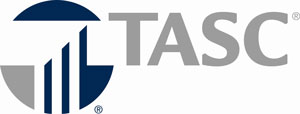Taking Advantage of Tax-Advantaged Benefits
Deciphering tax code takes more than time. The average employee and employer won’t have the time to become an expert in Internal Revenue Code Section 125 and Section 105.
As your benefits concierge, I can help you—whether you’re a business owner, employee, or not currently in the workforce—to make the most of the tax-advantaged health benefits available to you under the Affordable Care Act (ACA).
Section 125 of the Internal Revenue Service (IRS) tax code covers what’s known as “Cafeteria Plans,” which provide many options for employees and employers to promote savvy healthcare savings and to increase employee participation in healthcare plans that promote wellness. Together, employers and participating employees can use a Cafeteria Plan under Section 125 to find healthcare spending options that improve employee satisfaction and health, both of which benefit the employer.
What kinds of fringe benefits can I help you provide to your employees through Section 125?
Premium Only Plans (POP): Deduct your employees’ portions of your company-sponsored health insurance premiums before deducting taxes. By deducting each employee’s portion directly from his or her paycheck, you can reduce the employee’s total taxable income.
Flexible Spending Accounts (FSA): Encourage employees to save a pre-determined amount of money in a savings account on a pre-tax basis to pay for dependent care, eligible medical expenses, or transportation costs.
Health Savings Accounts (HSA): Give your employees who’ve signed up for high-deductible health plans (HDHP) the option to stow away savings in tax-advantaged savings accounts.
Section 105 offers sole proprietors, Limited Liability Companies (LLCs), partnerships, and S and C corporations many tax incentives for providing health insurance to employees and their families. What are some of the incentives available under IRS Section 105 for qualified business owners?
Carry-over of unused portions of medical expense accounts
Flexibility in reimbursing employees and family members for healthcare premiums and medical expenses under a Section 105 medical plan
100% deductions of health insurance, dental insurance, qualified long-term care, and other forms of insurance premiums. In some cases, premiums for eligible employees and their families—including self-employed business owners and their qualified family members—qualify for 100% deduction.
Because there are so many options, it can be difficult for most employers and individual employees to take maximum advantage of Section 105. Finding the right plan requires balancing employee benefits with the company’s tax savings strategy. As a health insurance broker, I work with clients every day to find positive solutions to this balancing act. If you’d like to discuss how to make the most of your Section 105 options, let’s talk!

If your business has grown beyond one employee you may qualify for the TASC FlexSystem Section 125. As your benefits concierge, I’m always looking for strategic resources to help my clients, and TASC is one of those resources.
Marilyn is my “Go-To” person on everything dealing with pre-tax benefits, including Section 105 and Third Party Administrators (TPA’s). Her knowledge benefits my clients every year! I recommend Marilyn to everyone who needs the CORRECT information about pre-tax benefits!

Payroll Tax Advantages and Portable Voluntary Benefits
Fringe benefits such as voluntary and supplemental insurance policies carry their own unique tax benefits for employers and employees alike. Be sure to explore the Supplemental Health Insurance page to see available options.
Payroll Deductions for Employers
Each employee who participates in a voluntary supplemental benefit plan is a potential source of savings on payroll taxes for the employer. When most voluntary plan premiums are deducted from an employee’s paycheck before taxes, the deducted premium is not subject to payroll taxes. Employers can save hundreds of dollars by knowing which plans qualify for these payroll deductions.
Portable Benefits for Employees
Your health insurance company pays your doctor and hospital, but who pays you? Supplemental health insurance plans are designed to put money in your pocket by paying you back for your participation. As the employee, you own the policies you’ve purchased as supplements to your employer-provided healthcare and life insurance plans. If you choose to leave your job, the policy can go with you at no extra cost. The policies remain intact to support you when you need it, regardless of your employment status!
Interested in which payroll and portable tax benefits you or your company qualifies for? Contact me to find out more!

